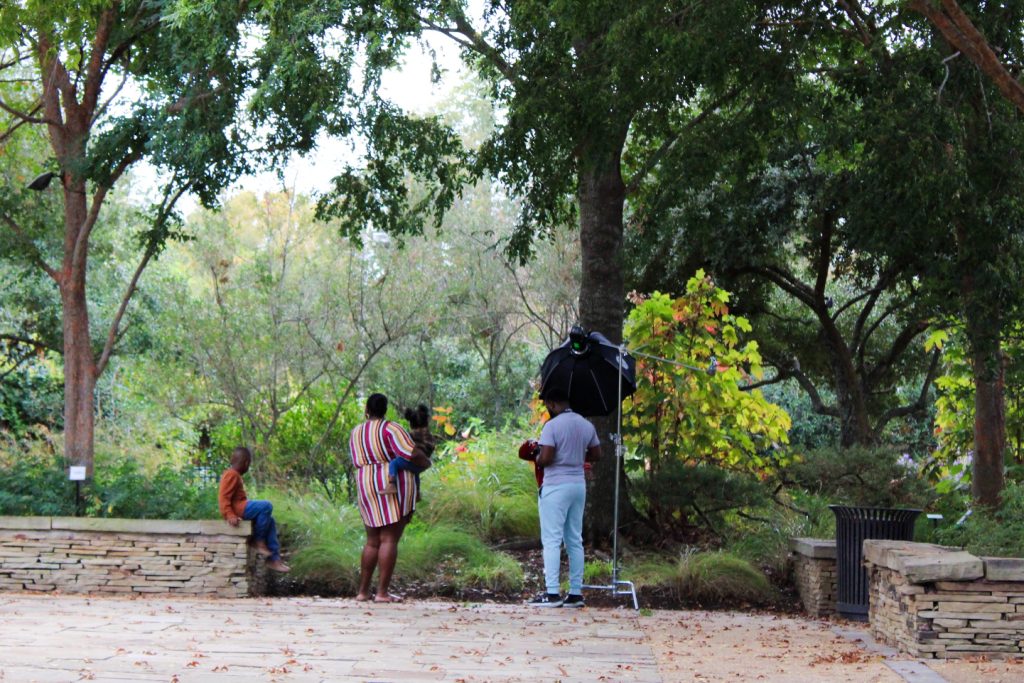
Dominika Parry is a social justice advocate at 2C Mississippi, a Jackson-based organization with a unique, climate-focused mission.
“(2C Mississippi) is a climate organization that works on social justice projects,” Parry said. “I’m making this distinction because these are delicate topics. … We work on social justice projects, and we bring in social justice money to low-income communities of color. The purpose of the organization (is) to work on climate change and openly talk about climate change in Mississippi.”
Talking openly about climate change is not always easy in a state where, according to the Yale Climate Opinion study, just 44% of people believe global warming will harm them personally.
Parry, who is the founding president of 2C Mississippi and an environmental economist, earned her Ph.D. in forestry and environmental studies from Yale University. There, she worked on a valuation of air pollution damages. She said she speaks out on climate issues because so many others will not.
“What I encountered was this constant fear of saying climate change. There are very many denialists who believe that this is not happening, that it’s all a myth and a joke and a hoax. But those who wanted to talk about it were also afraid that they would be ostracized and that there were going to be consequences from their employers, and so I put myself … in a position that allows me to talk about all the scientific facts and call them the way that they are,” Parry said.
The organization is managing a project funded by the Robert Wood Johnson Foundation to reduce Jackson’s exposure to extreme heat. They are developing green infrastructure to promote the cooling of Jackson. Green infrastructure refers to parks, tree lines, vertical gardens, rooftop gardens and other structures where the environmental impact of concrete can be reduced.
Mississippi State University’s architecture program has partnered with the Jackson Community Design Center and 2C Mississippi to give fifth-year students the opportunity to help with the project.
“We step in with student workers and do all of the … up-front analysis of needs to then create the vision for projects so that nonprofits (like 2C Mississippi) can approach … (larger) organizations with their vision and carry the project across the finish line. We fill a very particular need,” said Jassen Callender, a professor at MSU and the director of the JCDC.
Students in the program are designing two new parks for Jackson. Alston Brown, an MSU architecture student from Madison, Mississippi, said the work in Jackson is heavily influenced by public opinion.
“For example, the Jackson Community Design Center is helping 2C Mississippi with their grant to begin building some more parks because they found out that’s what the city needs and the community wants. I think that is an important aspect to think about when understanding what we do here as both students and volunteers,” Brown said.
Now, Parry is looking for more allies on state campuses.
“What I’m seeing is a huge interest among academics in social justice issues … and education,” Parry said. “When you come to Jackson, you find issues that are much more complicated, and they don’t follow the rules as nicely as you would want (from) a textbook … You are in a state that actually faces climate justice issues. If (students) and universities are willing to work on educational programs and connect with an outreach in action, I think that’s potentially extremely impactful.”
At the University of Southern Mississippi, educators are hoping to have an impact on some of Mississippi’s biggest climate change challenges by creating new degree programs in its School of Coastal Resilience, located on the university’s Gulf Campus. Students who enroll can choose from two programs: Sustainability Studies or Sustainability Sciences.
“Students pursuing these majors will learn from research scientists and scholars about the challenges that confront the ecologies, natural systems and communities of coastal zones and develop the understanding and skills necessary to address some of the most important socio-environmental problems confronting our region and indeed the world at large,” Associate Professor Westley Follett said.
Parry said that while nonprofit organizations, businesses and educational programs are contributing to the growing awareness of climate change in Mississippi, individuals also can have more impact than they may think.
“As an individual person, it is always good to change your behavior around the topic but what’s even better is forming a group with similar initiatives,” Parry said. “The larger the organization, the larger the impact. Get involved with others and think about plans to help move forward sustainable initiatives. Minimize your commutes, carpool, walk, bike, take public transportation, eat more plant-based foods and avoid food waste. Anything you can do helps improve the state of climate crisis in Mississippi.”



























